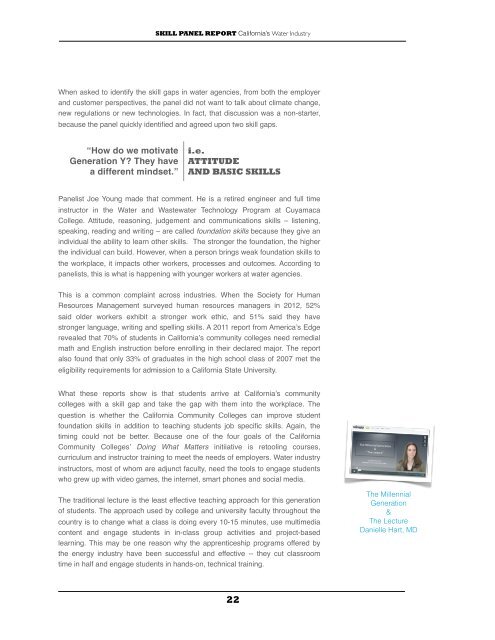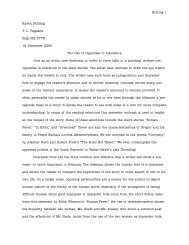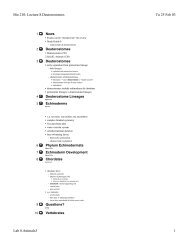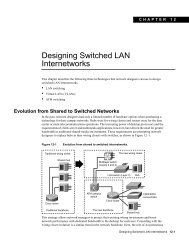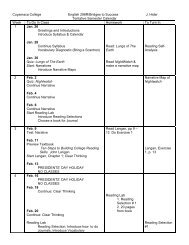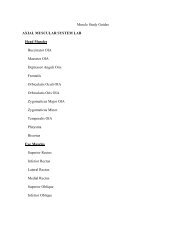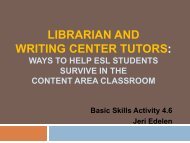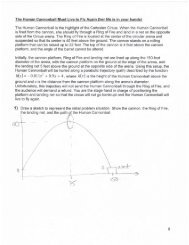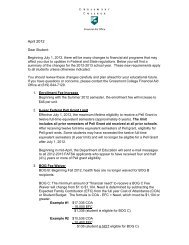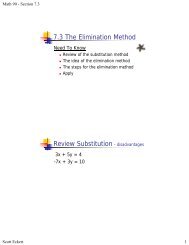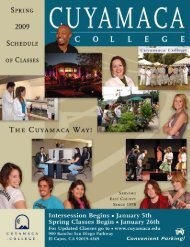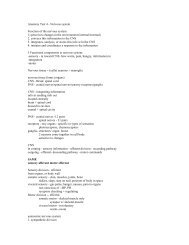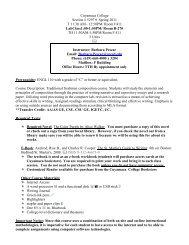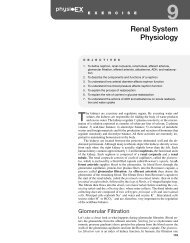SKILL PANEL REPORT California's Water Industry - Cuyamaca ...
SKILL PANEL REPORT California's Water Industry - Cuyamaca ...
SKILL PANEL REPORT California's Water Industry - Cuyamaca ...
Create successful ePaper yourself
Turn your PDF publications into a flip-book with our unique Google optimized e-Paper software.
<strong>SKILL</strong> <strong>PANEL</strong> <strong>REPORT</strong> California’s <strong>Water</strong> <strong>Industry</strong>When asked to identify the skill gaps in water agencies, from both the employerand customer perspectives, the panel did not want to talk about climate change,new regulations or new technologies. In fact, that discussion was a non-starter,because the panel quickly identified and agreed upon two skill gaps.“How do we motivateGeneration Y? They havea different mindset.”i.e.ATTITUDEAND BASIC <strong>SKILL</strong>SPanelist Joe Young made that comment. He is a retired engineer and full timeinstructor in the <strong>Water</strong> and Wastewater Technology Program at <strong>Cuyamaca</strong>College. Attitude, reasoning, judgement and communications skills – listening,speaking, reading and writing – are called foundation skills because they give anindividual the ability to learn other skills. The stronger the foundation, the higherthe individual can build. However, when a person brings weak foundation skills tothe workplace, it impacts other workers, processes and outcomes. According topanelists, this is what is happening with younger workers at water agencies.This is a common complaint across industries. When the Society for HumanResources Management surveyed human resources managers in 2012, 52%said older workers exhibit a stronger work ethic, and 51% said they havestronger language, writing and spelling skills. A 2011 report from America’s Edgerevealed that 70% of students in California’s community colleges need remedialmath and English instruction before enrolling in their declared major. The reportalso found that only 33% of graduates in the high school class of 2007 met theeligibility requirements for admission to a California State University.What these reports show is that students arrive at California’s communitycolleges with a skill gap and take the gap with them into the workplace. Thequestion is whether the California Community Colleges can improve studentfoundation skills in addition to teaching students job specific skills. Again, thetiming could not be better. Because one of the four goals of the CaliforniaCommunity Colleges’ Doing What Matters initiiative is retooling courses,curriculum and instructor training to meet the needs of employers. <strong>Water</strong> industryinstructors, most of whom are adjunct faculty, need the tools to engage studentswho grew up with video games, the internet, smart phones and social media.The traditional lecture is the least effective teaching approach for this generationof students. The approach used by college and university faculty throughout thecountry is to change what a class is doing every 10-15 minutes, use multimediacontent and engage students in in-class group activities and project-basedlearning. This may be one reason why the apprenticeship programs offered bythe energy industry have been successful and effective -- they cut classroomtime in half and engage students in hands-on, technical training.The MillennialGeneration&The LectureDanielle Hart, MD22


